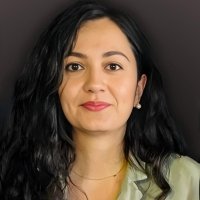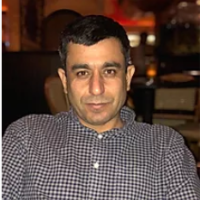Beginning August 3, 2014, around 5,000 Yazidis were brutally executed by the Islamic State in Iraq and Syria terrorist group (ISIS), and around 6,800 women and children were kidnapped and held captive in its slave trade system. This year, the governments of Iraq and the US, allies in the fight against ISIS, will join the global Yazidi community in commemorating the 10th anniversary of the Yazidi genocide.
President Biden will welcome Iraqi prime minister Mohammed Shia’a Al-Sudani to the White House for the first time and announced that both sides would reiterate their “commitment to the lasting defeat of ISIS.”
Almost 10 years after the attacks on our community, we want to ensure that the plight of Yazidis and other minorities remains at the heart of both their discussions and global attention and, therefore, have pinpointed key policy issues for the US and Iraq to discuss in Washington this week.
A worsening crisis
The struggles confronting the Yazidi community are still critical: nearly a decade on, the security conditions in Sinjar are teetering on the brink of another severe conflict; the pursuit of justice and accountability is constrained; close to two-thirds of the Yazidi population remains displaced and thousands of Yazidis are still either missing or held captive; and the issue of uncovering mass graves remains only partially addressed.
Some of these issues have worsened. The imminent closure of UNITAD, the UN investigative team in charge of the collection of evidence of ISIS crimes in Iraq, in September 2024 will severely compromise the possibility of achieving justice.
Additionally, the Sinjar Agreement, which was signed without the inclusion of the Yazidi community, has been halted. This gridlock could lead to another armed conflict between the PKK and other domestic and foreign actors that could once again displace the civilians who have returned to Sinjar.
Lastly, the Iraqi government plans to close the IDP camps in the Kurdistan region without enough preparation, illustrating disregard for the welfare of the displaced, which includes thousands of Yazidis, and comprising a virtual forced return. Moreover, the one-time payment of 4 million Iraqi dinars (around 3,000 USD) per family is insufficient and should be increased.
Prioritizing justice and accountability
We Yazidis watched unspeakable crimes against our people unfold with little recourse to stop them. Our activism led to the creation of UNITAD as a first step to documenting and preserving the evidence of these crimes. While we wanted an international or hybrid court to be established to prosecute members of ISIS, the international community was unwilling to take that step. So, we compromised: the crimes would at least be documented according to international standards until the world could finally give us a forum for prosecution.
Unfortunately, the world has still not reached that point. Now, the UN, based on a request from Iraq, is quietly closing the mechanism that raised the expectations of thousands of survivors for accountability without a proper plan and without telling us the final location of the collected evidence.
We ask that the evidence be transferred to a safe and secure location that remains accessible to requests from third states involved in investigating and prosecuting ISIS. Iraqi authorities can access this sensitive data once Iraq has enacted legislation criminalizing fundamental international crimes, conducted trials in line with international standards, and rebuilt trust with affected communities. Furthermore, the informed consent of sources, including survivors, must always be upheld.
This evidence collected by UNITAD should not remain hostage to political games. It should be used for what it was collected for bringing justice to survivors of all groups from Iraqi society who were affected by ISIS atrocities.
Mass grave exhumations
ISIS left countless mass graves behind when it executed Yazidi young and adult men perceived as threats and elderly women who were not deemed worthy of enslavement.
UNITAD contributed to the exhumation of dozens of mass graves in Iraq, including many in Sinjar alone. According to an assessment carried out by Yazda, around 24 mass graves related to crimes against Yazidis remain unexhumed. Without UNITAD to continue this work, survivors ask: who will continue the process of mass grave exhumations?
Exhumation, however, is not the only challenge. The process of identifying victims after their remains are taken to Baghdad is complex and slow. The remains of numerous Yazidi victims have been exhumed; however, the process of identifying these individuals and ensuring they are returned to their families for proper burial presents significant challenges. The opening of the graves is merely the initial step in a complex and lengthy process of identification and repatriation.
To accelerate that process, the US government provided UNITAD, and by extension, the Iraqi authorities, with resources, including investments in technology for mass grave exhumation and judicial guidance, which will go to waste without a long-term plan.
Establishing a long-term plan
On the precipice of a regional conflict, Sinjar needs international coordination. We encourage Iraq and the Kurdistan Regional Government to address the PKK issue without resorting to another armed conflict. Another war in Sinjar will result in a second displacement, putting Yazidis at risk of losing their homeland forever. The security of Sinjar should be a priority, with the end goal being a depoliticized security structure that prioritizes the safety of residents. This entails including and integrating all local forces who served in any capacity to the Ministries of Interior or Defense.
While the Sinjar agreement proposed some solutions, the Yazidi community was not consulted. We want the negotiations to restart this year with Yazidi leaders central to the conversation. Amending the Sinjar Agreement to address significant gaps and prioritize the appointment of a mayor is essential.
Finally, we commend Iraq for passing the Yazidi Survivors’ Law, which foresees reparation measures and components of transitional justice pillars, such as criminal accountability and truth-telling. We advocate for the law's provisions to be implemented in a survivor-centered manner, respecting the rights of affected communities, including Shabak, Christian, and Shia Turkmen groups.
The Yazidi Survivors’ Law is a first step toward a broader transitional justice framework, which is necessary to address the deep-rooted causes behind the Yazidi Genocide. This genocide did not happen in a vacuum. Without acknowledging failures on all sides in fixing the systemic issues, genocides and mass atrocities will repeat, and Yazidis and other minorities will steadily disappear from their historical homeland.
The views expressed in these articles are those of the author and do not reflect an official position of the Wilson Center.








